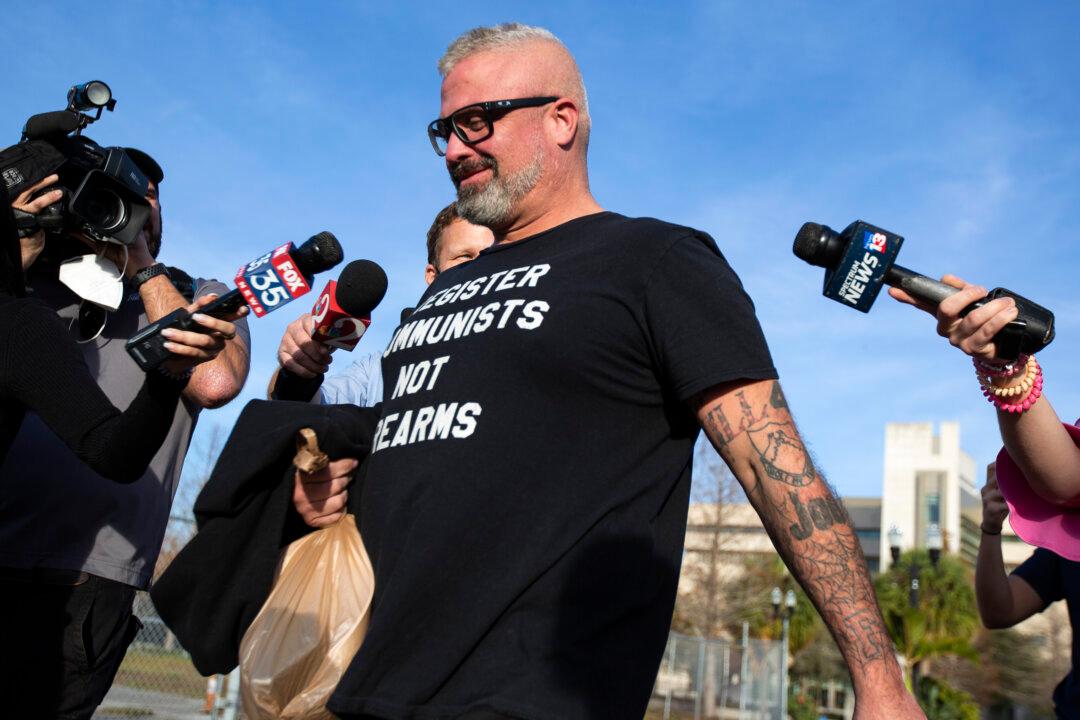A federal judge on Aug. 31 sentenced Proud Boys leader Joseph Randall Biggs to 17 years in prison and co-defendant Zachary Rehl to 15 years, calling the destruction of a fence on U.S. Capitol property during the Jan. 6, 2021, Capitol breach an act of terrorism.
Mr. Biggs, 39, of Ormond Beach, Florida, is the first of the Proud Boys leaders to be sentenced after being found guilty in May of seditious conspiracy and five other Jan. 6-related charges.






